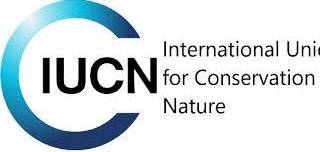
In response to escalating natural and climate crises, including the urgent need for increased funding for conservation and inclusive governance, IUCN announced the creation of four new centers that will help achieve global goals of sustainable development and its own ambitious program, Nature 2030.
“ The biodiversity and climate crises are fueled by unsustainable economic and social policies. Without more transformational approaches that invest in people and the planet, we will not achieve new nature or climate goals that are essential to protect and enhance life on Earth,” said the IUCN Deputy Director General, Stewart Maginnis.
“ Three of the four new IUCN Centers reflect the main pillars of sustainable development: environmental sustainability , feasibility economic and social equity . _ These are underpinned by a fourth Center on Science and Data. Together, in addition to increased awareness and shared goals, these centers will conduct innovative research and radical new partnerships in close collaboration with IUCN's unique Member and Expert Commissions.
“ It is important to note that the reorganization of IUCN is not driven by resource constraints, but on the contrary, it is therefore better placed to generate new resources to to achieve its ambitious conservation and development agenda, ” added Mr. Maginnis.
The new Center for Economics and Finance , led by Chris Buss, will oversee efforts to mobilize and redirect the resources needed to meet global biodiversity and climate change targets. Through the creation of new business models and economic analysis, the Center will advocate for investment in nature with the public and private sectors. This includes IUCN's relationships with multilateral agencies, such as the Global Environment Facility and the Green Climate Fund; business partnerships, including with the extractive and renewable energy sectors; and the growth of collaborative finance initiatives, such as the Subnational Climate Finance Initiative and the Coalition for Private Investment in Nature.
The Center for Society and Governance, led by Dr. Radhika Murti , will be responsible for institutional, legal and collaborative efforts to empower and protect the rights of a wide range of stakeholders, in particular traditionally marginalized communities, women and girls, indigenous peoples, local communities and young people. It will also advance legal concepts and regulations drawing on the technical expertise of its Environmental Law and World Heritage programs, and address issues of cross-border natural resource management as well as urban and peri-urban issues. complex, vital for sustainable development.
The Conservation Action Center , led by Trevor Sandwith, will oversee IUCN's cutting-edge work on biomes, including global land, ocean and species efforts. This center will work directly with regional teams to drive conservation and policy action on the ground and apply cutting-edge knowledge to improve conservation planning, monitoring and outcomes. He will also manage the conservation grant programs of IUCN, BIOPAMA, BEST and Save our Species, and provide leadership for global initiatives, such as the Decade of Ecosystem Restoration and the Great Blue Wall, in partnership with many stakeholders.
The Centre for Science and Data , led by Dr Jane Smart, will further enhance IUCN's long-standing reputation as a leading global authority on science and knowledge in conservation, and as a global standard setter for the collection, assessment and analysis of biodiversity data. The Center will maintain and conserve knowledge to support standards supported by IUCN, such as the IUCN Red List of Threatened Species™, IUCN Red List of Ecosystems, Green List of Protected Areas of IUCN and the IUCN Standard for Nature-Based Solutions™. This Center will also promote collective efforts to strengthen conservation assurance programs and lead program activities in knowledge management, education and public awareness, in addition to managing the IUCN Library.
IUCN expects this new Program structure to continue to evolve over the next six months and be fully operational by September 2022. In addition, in September last year, IUCN announced the creation of a Center for International Policy and a new IUCN Academy, both of which report to the Director General and have close links with the new Centres.
Posted on 2022-04-12 10:46








Comments